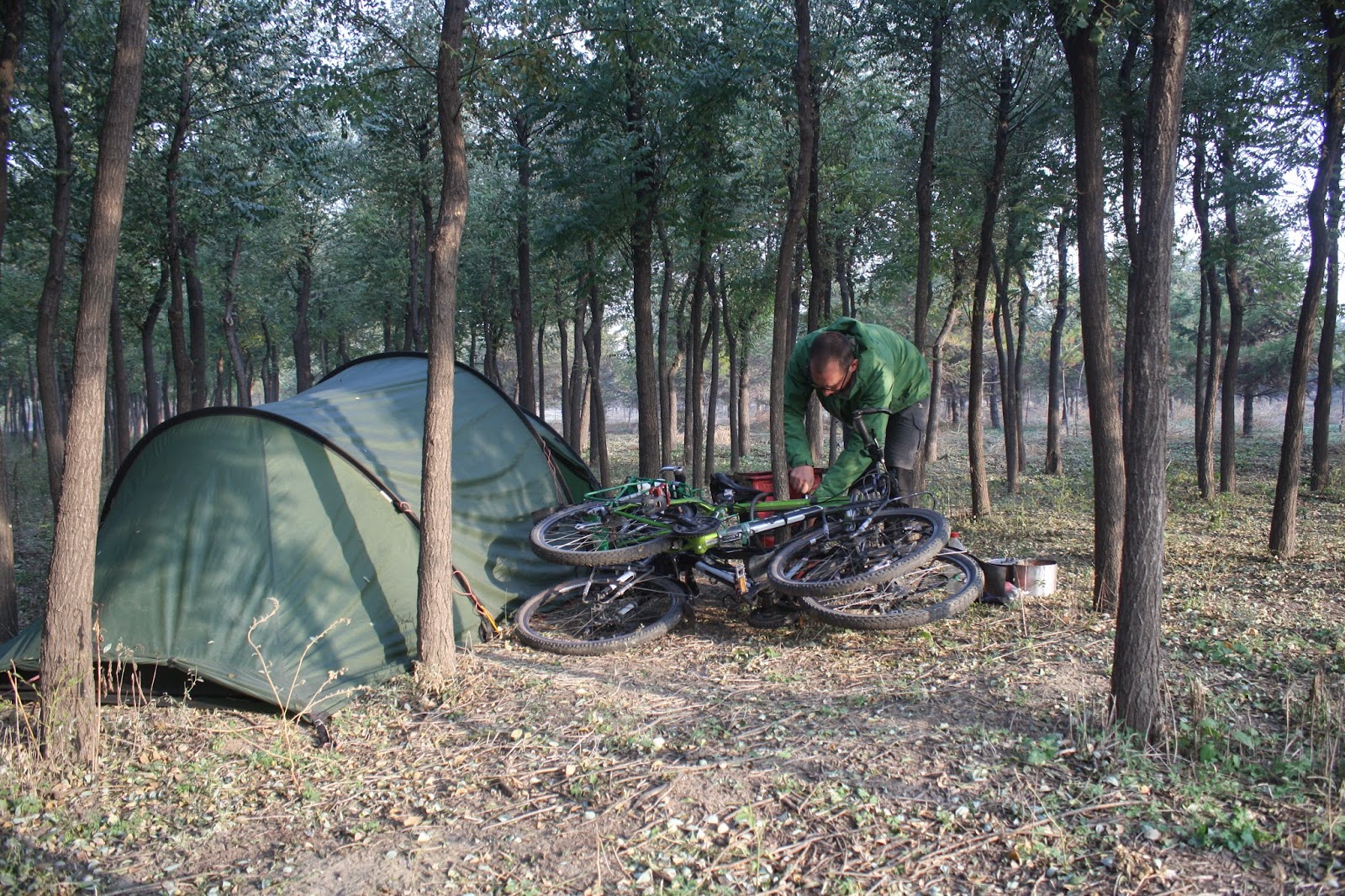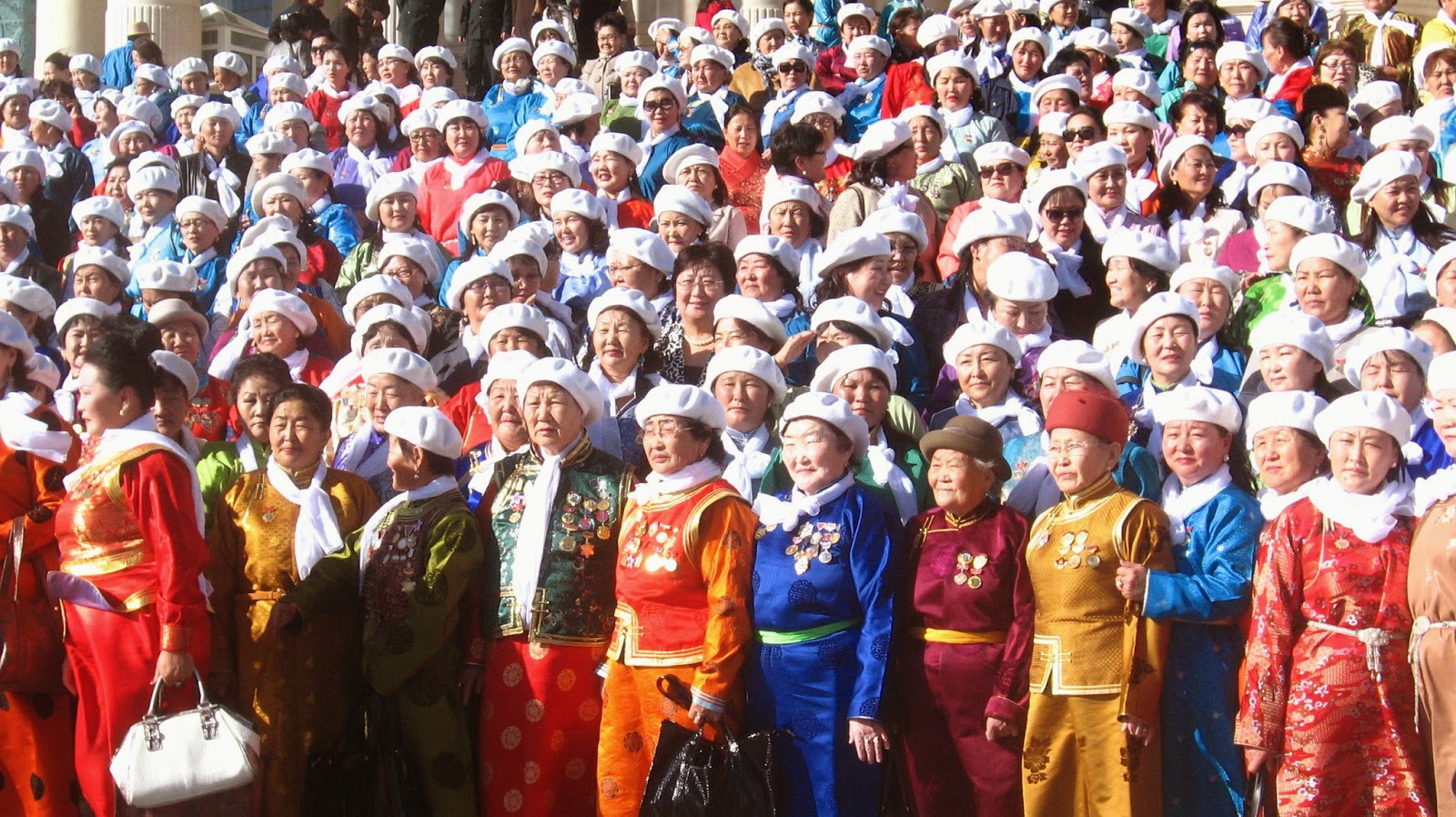 So we're in the capital of one of the largest nations on earth, with a fabulous wealth of history and cultural heritage (which is still being restored/ rebuilt/ remodelled for easier access) Where to begin? Well, this time we take a leaf from the locals' book - we go shopping. I know, we haven't come all this way just to go shopping, but sometimes on a long journey needs must. The city is at times difficut to navigate, principally because after a while all the roads begin to look the same. Beyond the central area of hutongs, the traditional alleyways of courtyard houses, the city is awash in high-rise appartment blocks, office towers and shopping malls. These are connected by the obligatory wide boulevards or ring roads. The city still has some green areas - parks dotted around, trees lining the roads. As we cycle around we feel like we've shrunk - everything is big and far apart. After stocking up in Decathlon with bits and bobs we then begin checking out some of the bike shops for some replacement parts. It's futile. The bike market here is geared up for people riding either cheap stuff or high-end models and nothing much in between. Oh well.
So we're in the capital of one of the largest nations on earth, with a fabulous wealth of history and cultural heritage (which is still being restored/ rebuilt/ remodelled for easier access) Where to begin? Well, this time we take a leaf from the locals' book - we go shopping. I know, we haven't come all this way just to go shopping, but sometimes on a long journey needs must. The city is at times difficut to navigate, principally because after a while all the roads begin to look the same. Beyond the central area of hutongs, the traditional alleyways of courtyard houses, the city is awash in high-rise appartment blocks, office towers and shopping malls. These are connected by the obligatory wide boulevards or ring roads. The city still has some green areas - parks dotted around, trees lining the roads. As we cycle around we feel like we've shrunk - everything is big and far apart. After stocking up in Decathlon with bits and bobs we then begin checking out some of the bike shops for some replacement parts. It's futile. The bike market here is geared up for people riding either cheap stuff or high-end models and nothing much in between. Oh well.  |
| bike servicing - these can be found all over the city |
Since we arrived in China we've had warmer weather - the days are mild. Our old guidebook recommends visiting Beijing in October when it's neither too hot nor too cold and when the skies are likely to be blue but since we've arrived it's got progressively hazier. We haven't thought much about the pollution - it's not like India where you get a face full of blue smoke everytime you walk down the road - but one day we check the Air Quality Index website. Beijing is around 400. London is 41, Manchester 30. During the night the index tops over 500. Anything over 300 is regarded as hazardous and people should refrain from physical activity. It turns out we cycle about 30km around the city this day. But we don't pass out or develop hacking coughs and the next morning the winds have arrived and brought blue skies for a brief respite.
 |
| in the Heavenly Park |
Our favourite pastime is wandering the old hutong neighbourhoods that surround the Forbidden City. Climbing a hill just north of this landmark gives you a 360 degree view of the city centre. All around us are trees. The hutongs are built in a grid system and the old houses are all single storey so all we can see are the trees that have outgrown them. Much has been bulldozed in the drive to modernize and develop, but this small area remains. The narrow lanes are full of life and look rather shabby by Chinese standards. Old bikes and rusty trikes litter the streets. There are old chairs left outside doorways. Peeping in you get a glimpse of clutter and more clutter. Inside are very small neglected buildings which look like they'd be quite gloomy, facing into the courtyard space. The streets are very clean, thanks to the army of street sweepers and on each block is a public toilet. This suggests that the houses have no internal plumbing. No wonder the government wanted to pull them all down. The shame of it.
We stay in a hostel in one hutong surrounded by small eateries, shops and not far from lanes with trendy cafes and shops, boutique hotels and micro-brewery pubs. There are more modern buildings stuck incongruosly amongst all the older housing. A school, flats, local government building. Some of these bear the scars of the eighties fashion in China - coated floor to roof in white tiles. But there also some glorious looking big old courtyard houses with ornate doorways and entranceways. Many remain tantalisingly locked up and dusty with signs declaring they have been protected as cultural relics. Is the only way to protect something here to lock it up?
 |
| no way out |
Our main preoccupation becomes how to find a way out of Beijing and on to Nanjing where we plan to start cycling again. The trouble is there are only tickets for fancy 'bullet' trains and these are expensive but more importantly do not take bicycles. We remembered that usually the bikes have to go separately, but they can't even go from the station where the fast trains leave. Also there are restrictions on what you can take onto the train in your baggage: no gas cannisters, no fuel bottle full of petrol and no knives. Fairly reasonable I suppose, but none of these conditions are strictly applied to bus travel so we check out the bus option. After visiting three bus stations spread over the south of the city we give up - there seem to be no buses to Nanjing. Maybe the trains have taken all the business. We go back to the trains. Sleeper tickets sell out fast. It looks like we have to take the 'hard seat' option on a sloooooow overnight train if we don't want to pay £100 for our journey south. Ooooh, can't wait.
 |
| endless amounts of laundry in the hutongs |




























